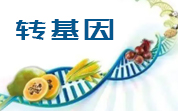食品伙伴网讯�?a href='//www.sqrdapp.com/news/tag_4413.html' class='zdbq' title='营养成分相关食品资讯' target='_blank'>营养成分网消息,在本月初由法律事务所Eversheds举办的食品及饮料研讨伙�/a>上,Eversheds认为,由酸奶及活�?a href='//www.sqrdapp.com/news/tag_434.html' class='zdbq' title='发酵乳相关食品资�? target='_blank'>发酵乲�/a>协会(YLFA)提出的益生菋�/a>作为通用描述符的申请不会成功,因为对于一般消费者来说,益生菌术语是和健康声称相关联的,并且该术语在市场上的使用历史不长、�/p>
During a food and drink seminar organised by Eversheds earlier this month, Katharine Vickery, a partner with the firm, doubted that the attempt by the Yoghurt & Live Fermented Milks Association to get probiotic accepted as a generic descriptor would be successful.
The reason it was unlikely to be successful, she said, was because the term was too closely associated in the average consumer's mind with a health claim and there was insufficient history of its use in the market.
Generic descriptor
A generic descriptor is a term which has traditionally been used to indicate a particular class of food and beverage and which, like 'tonic water', 'digestive biscuits' and 'cough drops', could imply an effective on health. The EC has laid down the procedures necessary to exempt generic descriptors from associated health claims.
Evidence of presence in the market of EU Member States (MSs� for over 20 years has to be demonstrated. Consumers also have to link the generic descriptor with the specific class of food or drinks mentioned.
原文链接�?lt;http://www.nutraingredients.com/Product-Categories/Probiotics-and-prebiotics/Probiotic-labelling-bid-shaky-says-top-legal-group>










 地区9�/font>
地区9�/font>

 欧盟评估转基因玉米MO
欧盟评估转基因玉米MO
 欧盟评估一种麦芽糖淀
欧盟评估一种麦芽糖淀 美国拟撤销若干肉类叉�/a>
美国拟撤销若干肉类叉�/a> 鲁公网安� 37060202000128叶�/a>
鲁公网安� 37060202000128叶�/a>



